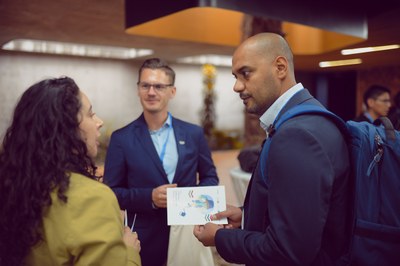29.11.2023 - Water Security and Climate Change Conference 2023 - Coping with extremes: Impacts & Innovation for Adaption
Cuenca/Giessen, 29 November - The SDGnexus Network convened the Water Security and Climate Change Conference 2023 (WSCC23) at the University of Cuenca, Ecuador on November 21-23, 2023, drawing together a global cohort of over 200 participants from 25 countries across the Americas, Europe, Asia, and Africa. The conference provided a platform for sharing cutting-edge insights, addressing challenges, and exploring opportunities integral to water security in the context of climate variability and change.
“Coping with extremes: Impacts & Innovation for Adaption” encapsulated the central theme of WSCC 2023, echoing across three major conference themes:
- Water and Climate: Challenges, Opportunities, and Innovative Solutions
- Water & Climate Resilience in Agri-Food Systems
- Water Security: Science-Policy-Society Dialogue (Priorities & Implementation)
Keynote sessions, thematic sessions, workshops, and poster presentations revolved around these central conference themes.
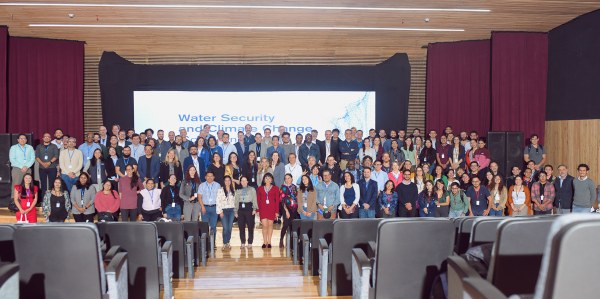
Keynote Sessions
During three keynote presentations distinguished thought leaders and visionaries delved into critical topics aligned with the conference themes:
- Co-producing climate adaptation strategies for mountain water security - presented by Prof. Wouter Buytaert
- Strategies and challenges for soil and water management in Brazilian agricultural production systems to increase resilience to climate change - by Aluísio Granato de Andrad
- Confronting the Politics of Water Security - addressed by Jami Nelson-Nuñez
Co-creation or co-design of knowledge is necessary to address the challenges of water and climate crisis.
High-Level Panels
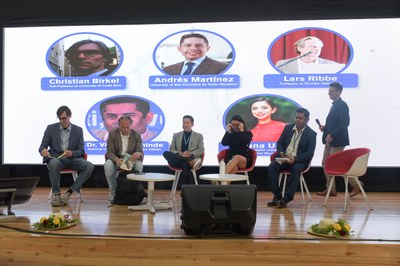 |
The engaging high-level panel discussions fostered insightful conversations and knowledge-sharing among influential voices, emphasizing the urgency of cohesive actions:
|
Thematic Sessions
The conference hosted nine thematic sessions, offering a comprehensive array of oral presentations covering diverse areas such as water management, ecosystem resilience, climate change impacts on agri-food systems, and societal engagement in water management problem-solving. Oral presentations were selected and assigned to a thematic session by the committee based on the submitted abstract in the following sessions:
- Water management and hydropower integration in a changing climate
- Ecosystem resilience and sustainable practices
- Building climate resilience in water systems: strategies and solutions
- Climate change, crises, and shocks affecting agri-food and ecosystems
- Innovation and technology for agri-food systems transformation
- Societal and economic improvements to increase resilience and adaptation capacity
- Science-policy-society interaction and problem solution
- Methodologies to cope with water security
- Society interaction and involvement to solve water management problems
Better data, diverse knowledge, better institutions for better decisions.
Workshops
|
|
Nine workshops, featuring both specific topics and thematic subgroup discussions, facilitated in-depth exploration and exchange of ideas on emerging issues closely tied to the conference themes:
|
Poster Presentations
Approximately 50 early-career researchers showcased their studies through engaging poster formats, fostering a space for interaction, knowledge exchange, cross-case learning, and networking opportunities.
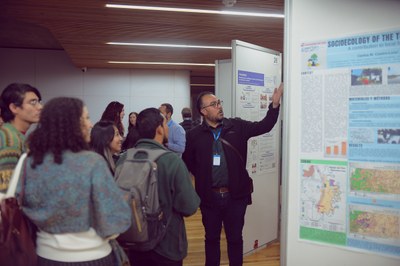 |
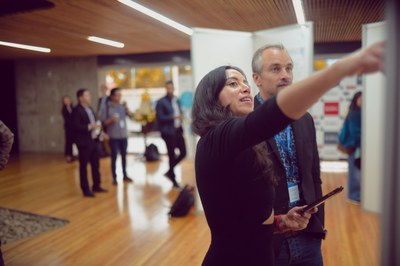 |
Field Visits
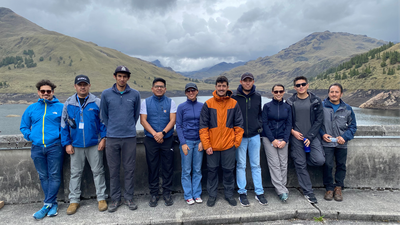 |
  |
About Water Security and Climate Change Conference
The Water Security and Climate Change Conference (WSCC) is an annual event where scientists, policy makers, and stakeholders from various sectors discuss the diverse facets of water security and its relationship to climate variability and climate change. The conference strives to go beyond science and build bridges between the state-of-the-art in multiple disciplines and different groups of stakeholders and practitioners.
Currently chaired by the SDGnexus Network, the conference has been initially implemented under the auspices of the Sustainable Water Management in Developing Countries network (SWINDON) at the University of Braunschweig, the Centers for Natural Resources and Development (CNRD) at the TH Köln, the Food Security Center (FSC) at the University of Hohenheim, all in close cooperation with the Asian Institute of Technology (AIT).
The WSCC 2023 is supported by the German Academic Exchange Service exceed program (Higher Education Excellence in Development Cooperation) from funds of the Federal Ministry for Economic Cooperation (Bundesministerium für wirtschaftliche Zusammenarbeit und Entwicklung (BMZ)) - grant number 57526248.
It follows a successful series of conferences implemented in Thailand, Germany, Kenya, Mexico, Vietnam, and Thailand between 2016 and 2022.
Learn more about WSCC23 and access the book of abstracts: https://watersecurity.info/
For media inquiries or further information, please contact: sdgnexus@zeu.uni-giessen.de
Photo credits: the University of Cuenca, Assubayeva

